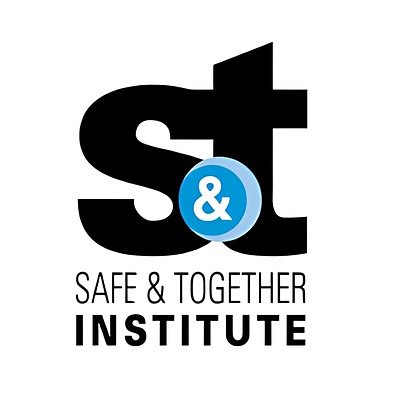
Shifting the Focus: Experts Gather to Tackle Domestic Violence Through a Child-Centered Lens
A global conference is set to redefine approaches to domestic violence, emphasizing perpetrator accountability, survivor support, and, crucially, the safety and wellbeing of children caught in the crossfire.
Shifting the Focus: Experts Gather to Tackle Domestic Violence Through a Child-Centered Lens
Sydney, Australia – A global gathering of leading experts is set to redefine approaches to domestic violence, moving beyond traditional risk assessment to a more nuanced framework that prioritizes child safety, survivor empowerment, and a deeper understanding of coercive control. The conference, hosted by the Safe & Together Institute, will bring together professionals from across the globe to share insights and advance a child-centered, survivor-aligned approach to this pervasive social issue.
For decades, interventions focused primarily on protecting the adult survivor, often leading to separation of children from protective parents and limited focus on the perpetrator’s behavior. This conference signals a paradigm shift, emphasizing that protecting children requires supporting the survivor and holding perpetrators accountable for their actions as parents.
“The traditional approach, while well-intentioned, often failed to recognize the complexities of coercive control and the devastating impact it has on children,” explains a conference organizer. “We’re moving towards a model that acknowledges the pattern of abuse, understands the perpetrator’s tactics, and empowers survivors to create safe environments for their children.”
Understanding Coercive Control – Beyond Isolated Incidents
The conference centers around the “Safe & Together” model, a framework that moves beyond examining isolated incidents of violence to analyzing the overall pattern of coercive control. Coercive control, a form of domestic abuse characterized by manipulation, intimidation, and isolation, often lays the groundwork for physical violence and creates an environment of fear and control.
“It’s not just about the hitting or the yelling,” explains a clinical psychologist specializing in domestic violence. “It’s about the constant erosion of a person’s self-worth, the isolation from friends and family, the monitoring of their movements, and the subtle threats that create a constant state of fear. This pattern impacts children profoundly.”
This nuanced understanding necessitates a different approach to risk assessment. Traditional models often focused on immediate physical danger, while the new framework examines the perpetrator’s overall behavior and its impact on the family system. The goal isn’t just to remove the child from immediate danger, but to dismantle the pattern of control and create a sustainable safety plan.
Perpetrator Accountability as Parents: A Critical Shift
A key element of the conference is the emphasis on holding perpetrators accountable specifically as parents. Traditional interventions often focused solely on addressing the abuser’s behavior towards the adult survivor, neglecting the harm inflicted on children.
“We need to recognize that abusive behavior doesn't stop at the bedroom door,” says a family law expert. “Abusive parents often use children as pawns, manipulate them emotionally, and undermine the protective parent’s authority. We need to address this behavior directly and hold perpetrators accountable for the harm they inflict on their children.”
This requires a shift in legal and social service practices. Courts and child protection agencies need to recognize the impact of coercive control on children and consider the perpetrator’s behavior as a parent when making custody and visitation decisions. Interventions for perpetrators need to focus specifically on changing their behavior as parents and addressing the harm they have inflicted on their children.
A Global Movement with Culturally Informed Approaches
The conference isn’t just a gathering of Western experts. It’s a global movement that recognizes the importance of culturally informed approaches. Speakers like Dr. Inez Fainga'a-Manu Sione, a researcher and community advocate with deep roots in Pacific Islander communities, will share insights on adapting interventions to meet the unique needs of diverse populations.
“We need to move away from one-size-fits-all approaches,” Dr. Sione notes. “Culture plays a significant role in how domestic violence is experienced and addressed. We need to listen to the voices of survivors from diverse backgrounds and develop interventions that are culturally sensitive and respectful.”
The inclusion of speakers like Sarah and Matt Brown, founders of the “She Is Not Your Rehab” movement, also highlights the importance of intergenerational healing and addressing the root causes of violence. Their work emphasizes the need for perpetrators to take accountability for their actions and for survivors to receive the support they need to heal and rebuild their lives.
Moving Forward: A Call for Systemic Change
The conference isn’t just about sharing information. It’s a call for systemic change. Participants will discuss strategies for transforming legal and social service practices, improving data collection, and advocating for policies that prioritize the safety and wellbeing of children and survivors.
“This is a critical moment,” says a child protection advocate. “We have the knowledge and the tools to make a real difference in the lives of children and families affected by domestic violence. We need to work together to create a system that is truly child-centered, survivor-aligned, and focused on preventing violence before it happens.”
The shift towards this new framework is not without its challenges. It requires a fundamental rethinking of how domestic violence is understood and addressed, as well as a commitment to providing adequate resources and support for survivors and their children. However, the potential benefits are immense. By prioritizing the safety and wellbeing of children and empowering survivors to rebuild their lives, we can create a future free from violence.
Keynote speakers at the conference include:
* David Mandel, Founder and CEO of the Safe & Together Institute
* Matt & Sarah Brown, Founders of “She Is Not Your Rehab”
* Professor Daryl Higgins, Director of the ACU Institute of Child Protection Studies
* Dr. Inez Fainga'a-Manu Sione, Community Researcher & Advocate
* Shane Senituli, Indigenous & Pacific Methodologies Expert
📝 This article is still being updated
Are you a relevant expert who could contribute your opinion or insights to this article? We'd love to hear from you. We will give you full credit for your contribution.
Contribute Your Expertise →